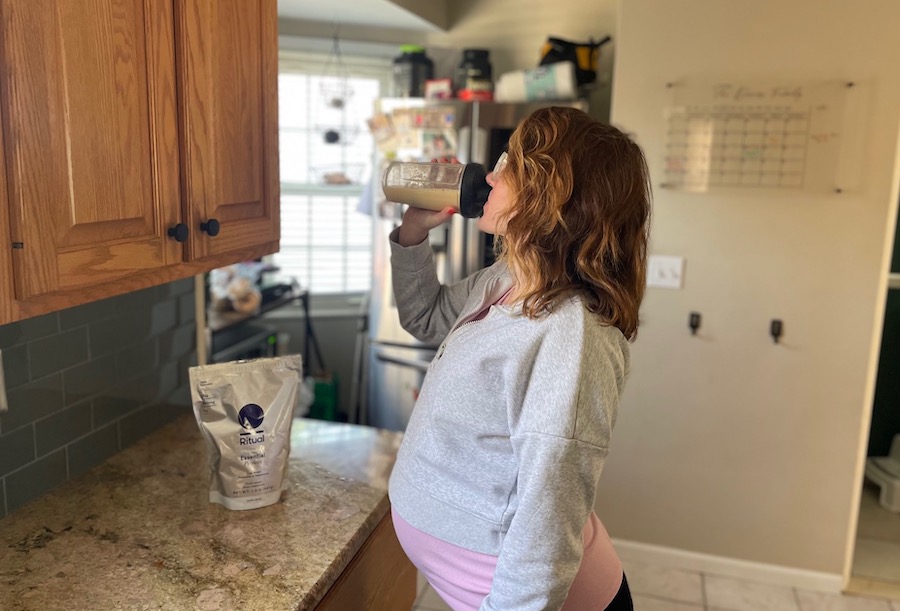We test and review fitness products based on an independent, multi-point methodology. If you use our links to purchase something, we may earn a commission. Read our disclosures.
Protein and amino acids—aka the building blocks of protein—are critical during all stages of life, and even more so during pregnancy. And a 2018 review1 emphasizes that dietary protein intake is key for fetal survival, growth, and development.
So, does that mean pregnant women can also reap the benefits of protein powder? Likely so, but as with all dietary recommendations when “eating for two,” there are some considerations to keep in mind.
Ahead, we’re discussing all things protein powder while pregnant, including its benefits, safety, and tips to find the best pregnancy-safe protein powders.
Medical disclaimer: This article is intended for educational and informational purposes only. It is not intended as a substitute for medical advice. For health advice, contact a licensed healthcare provider.
How Much Protein Do You Need During Pregnancy?
We strongly recommend consulting a healthcare professional—such as a doctor or registered dietitian nutritionist—if you’re wondering, “How much protein do I need?” during pregnancy, because consuming too little and too much protein carries significant risks. Nevertheless, there are general protein guidelines to expect when you’re expecting.
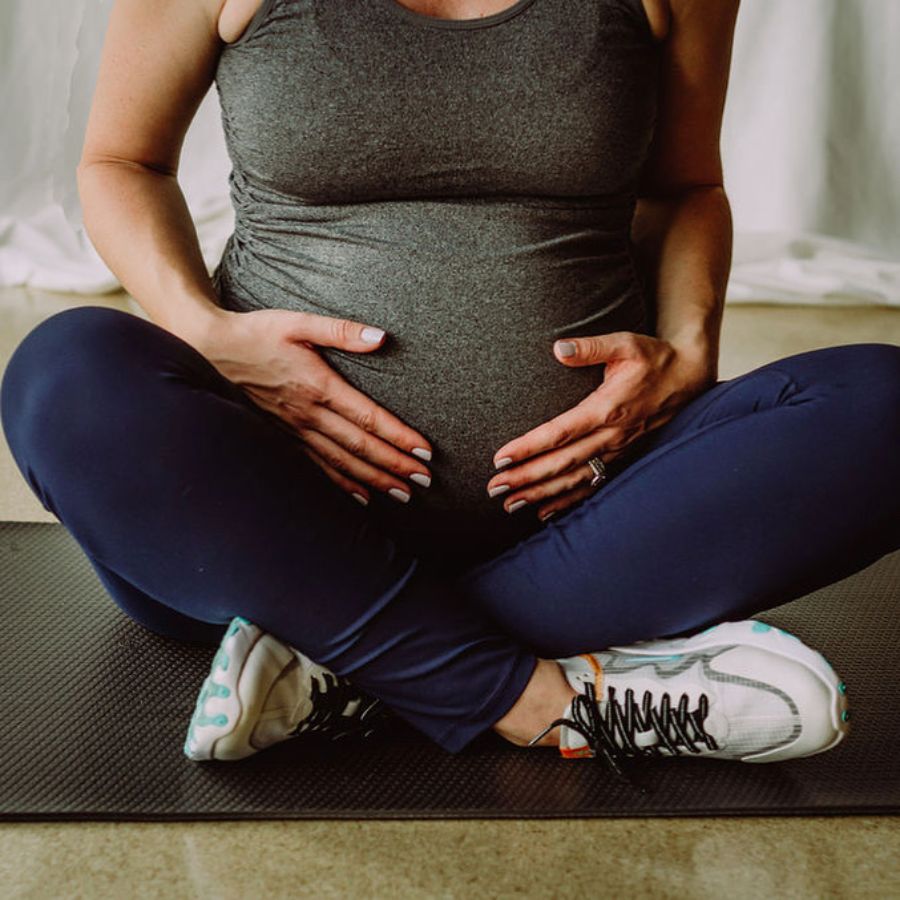
Because protein (and energy) requirements fluctuate from conception to delivery, a 2021 study2 provides guidelines based on the trimester:
- During the first trimester, the recommended dietary allowance (RDA) is approximately 46 grams of protein—or 0.8 grams per kilogram of body weight (g/kg)—per day. This is similar to the recommendation for non-pregnant women.
- In the second and third trimesters, protein requirements rise to 71 grams (or 1.1 g/kg) daily to support the baby’s growth.
It’s essential to understand that the RDA indicates the amount of protein needed to sustain basic physiological functions, and the American Pregnancy Association3 suggests that pregnant women need between 75 and 100 grams of protein daily.
Moreover, individual protein needs can differ based on factors like activity level and carrying multiple babies.
Additional Factors Impacting Pregnancy Protein Needs
Pregnancy in and of itself impacts protein needs, although other factors should also be discussed with a medical professional and considered, such as:
- Activity level, as highly active women often require more protein than mostly sedentary women
- Multiple pregnancies, as research4 suggests women may need to consume an additional 25 grams of protein per baby daily
- Breastfeeding while pregnant since breastfeeding women5 require more energy to support adequate milk supply
- Pregnancy post-bariatric surgery, in which research6 recommends a protein supplement to treat protein deficiencies
Now, this begs the question, are protein powders safe while pregnant? Let’s explore.
Are Protein Powders Safe to Drink While Pregnant?
Like determining nutritional needs, pregnant women should consult a doctor before taking any dietary supplement. However, drinking protein powders during pregnancy can be helpful and safe—but with one major caveat…
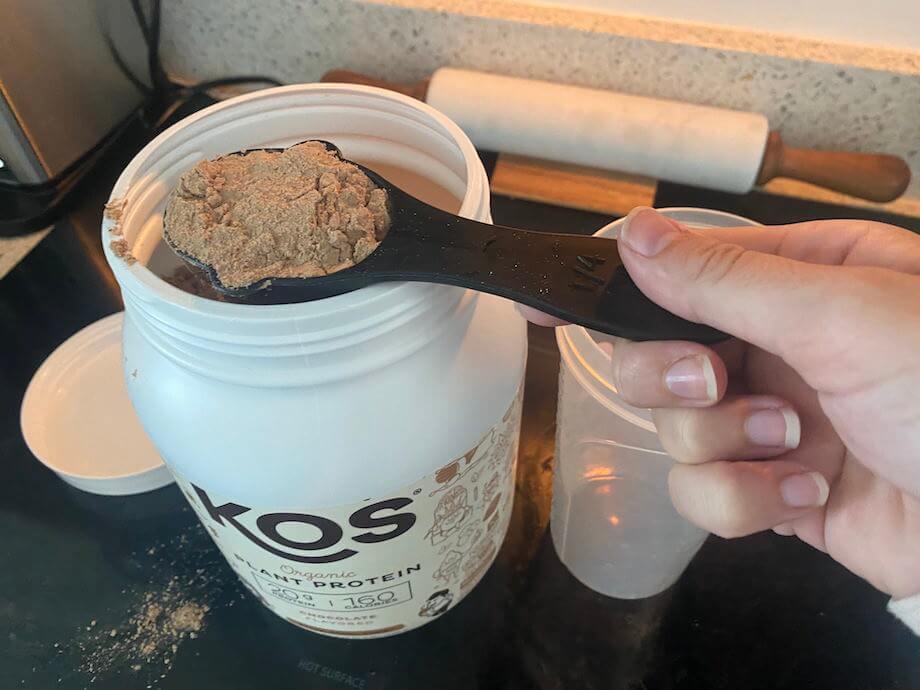
Protein Supplements Are Safest If Needed
A recent 2020 review7 indicates nutritional supplementation is a safe and cost-effective way to reduce harmful pregnancy complications and outcomes. However, the researchers stress that a well-balanced diet should be the primary focus.
Prioritizing a balanced diet with all macronutrients—protein, carbohydrates, and fat—isn’t new news, and a review8 involving over 9,000 pregnant women helps confirm this. While high-protein supplementation might harm the fetus, balancing energy and protein supplementation can enhance fetal growth and decrease stillbirth risks.
Another study9 highlights that balanced protein energy supplementation (up to 20% energy from protein) positively affects fetal growth and increases birth weight. However, fetal growth is primarily influenced by the total dietary intake—including the usual diet and the supplement— rather than the supplement content alone.
All in all, if you are already consuming a balanced, healthy diet rich in protein, the extra protein from supplements might be unnecessary and potentially harmful.
Benefits of Consuming Protein Powder During Pregnancy
Now that we better understand the safety of protein powder during pregnancy, let’s fully capture the benefits they can deliver to mom and baby.
Supports a Healthy Pregnancy
Protein and amino acids10 are vital for a healthy pregnancy due to the significant growth and changes mothers experience from conception to birth. Using protein powders to meet protein needs can support the well-being of both mother and baby.
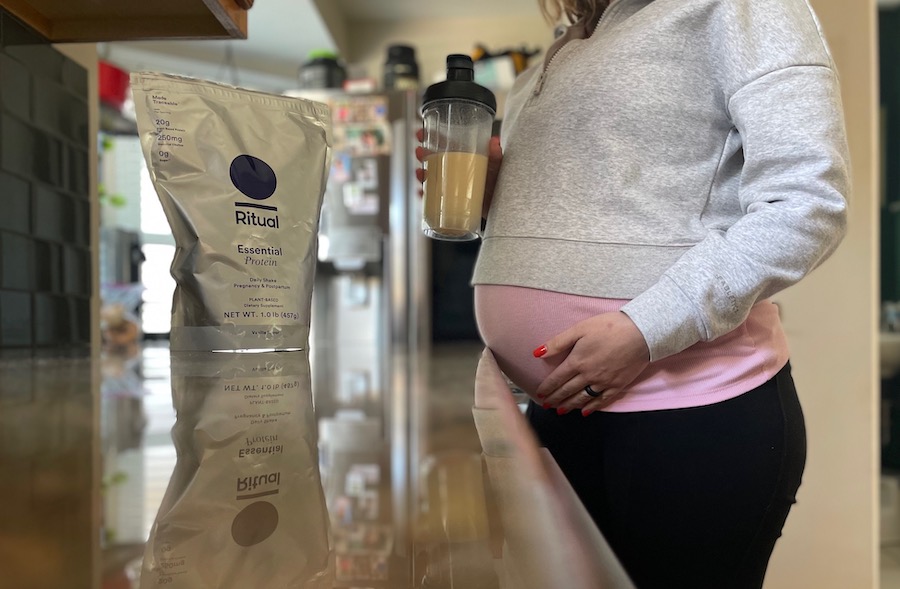
Promotes Normal Birth Weights
Although a baby’s growth is part of a healthy pregnancy, it merits attention due to the lifelong impacts tied to birth weights. Research11 indicates that children with low birth weight (LBW) have higher risks of cognitive, neuropsychological, behavioral, and health issues, among others. Addressing maternal nutrition, including protein intake, can help mitigate these risks.
Maximizes Convenience
Protein supplements are convenient, which can be a mega plus for expecting moms trying to juggle all life has to offer—like work, exercise during pregnancy, and relationships—all while growing a baby. Quickly mixing up a protein shake, especially when paired with a carb or fat source, delivers sustenance in a pinch.
Satisfies Cravings Healthily
A 2016 study12 highlights that pregnant women often crave sweets like chocolate, fruit, and dairy foods. Given the variety of protein powder types and flavors available—from fruity whey protein powders to chocolatey vegan protein powders—expecting mothers can satisfy cravings while increasing protein intake, reducing added sugars, and stabilizing blood sugar levels.
Compensates Food Aversions
Pregnant women frequently face aversions to protein-rich foods—like meats, fish, and eggs—that can lead to nausea and food avoidance. Often better tolerated, protein powders can help compensate for these protein and energy gaps during such aversions.
Provides Micronutrients
While dependent on the type of protein powder, they’re often naturally rich in beneficial micronutrients like calcium. Some protein powders may also contain added vitamins and minerals to fill nutritional gaps. (This could be a risk, though, so we’ll jump right into that.)
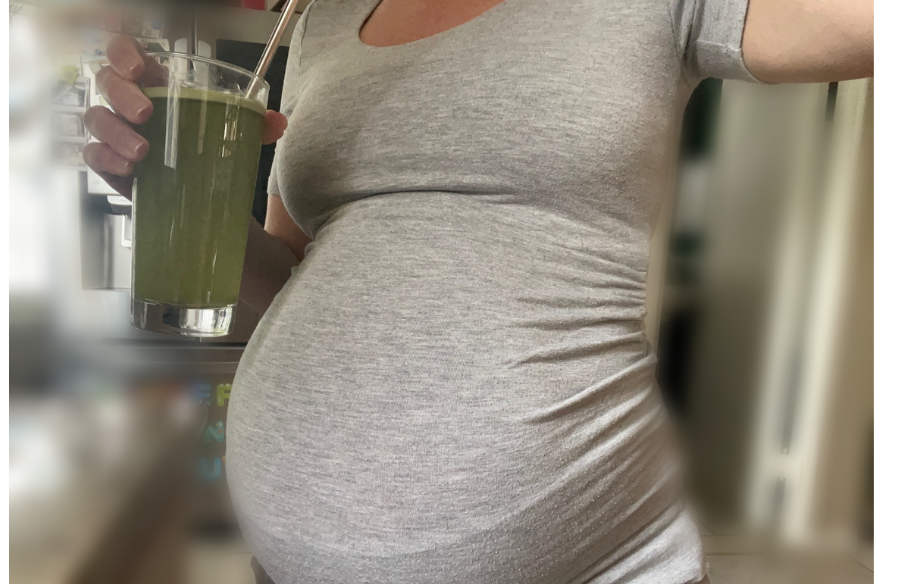
Potential Risks of Consuming Protein Powder During Pregnancy
Benefits aside, the potential risks of consuming protein powder during pregnancy are also worth knowing to help guide informed decisions.
Nutrient Imbalances
Ironically, protein powders may lead to nutrient deficiencies and toxicities if used without caution. Confused? We’ll explain.
Nutrient deficiencies are at greater risk, notably if protein powder regularly replaces protein-rich food sources. This is because most protein powders mostly contain, well, protein and often lack essential vitamins and minerals sourced from high-protein foods—like iron from red meat and fiber from beans.
Conversely, some protein powders contain added vitamins and minerals, and excess micronutrients can be harmful if you are already taking a prenatal vitamin.
Contamination
According to Toxicology Reports13, heavy metals—like arsenic, lead, and mercury—have been detected in protein powder supplements. Though the National Sanitation Foundation clarifies that “detectable” doesn’t mean unsafe, it’s important to be aware of given the established link between prenatal heavy metal exposure and adverse birth outcomes.14
Added Sugars
Indulging in sweet treats occasionally is certainly OK, but excessive consumption of added sugars can harm both mother and baby. A study in Nutrients15 indicates that high sugar intake during pregnancy can lead to issues like excessive weight gain, gestational diabetes, and preterm birth.
Expired Products
Most protein powders expire within 18 months, after which they can lose their potency. While severe side effects are uncommon, using expired products can cause and compound pregnancy-related symptoms like upset stomach and nausea.
The Best Protein Powders for Pregnancy: What to Look For
Whether you’re new to protein powders or simply looking for a product for you and your baby, GGR’s best protein powder for pregnancy roundup has you covered! Supplements expert and registered dietitian Dr. Robert Iafelice also shares insight on what to look for, and here are the cliff notes:
- Source of protein: Find a protein powder that best suits your dietary needs and preferences, as they range from dairy proteins to plant proteins—like casein protein, hemp protein, soy protein, pea protein, brown rice protein, and beyond.
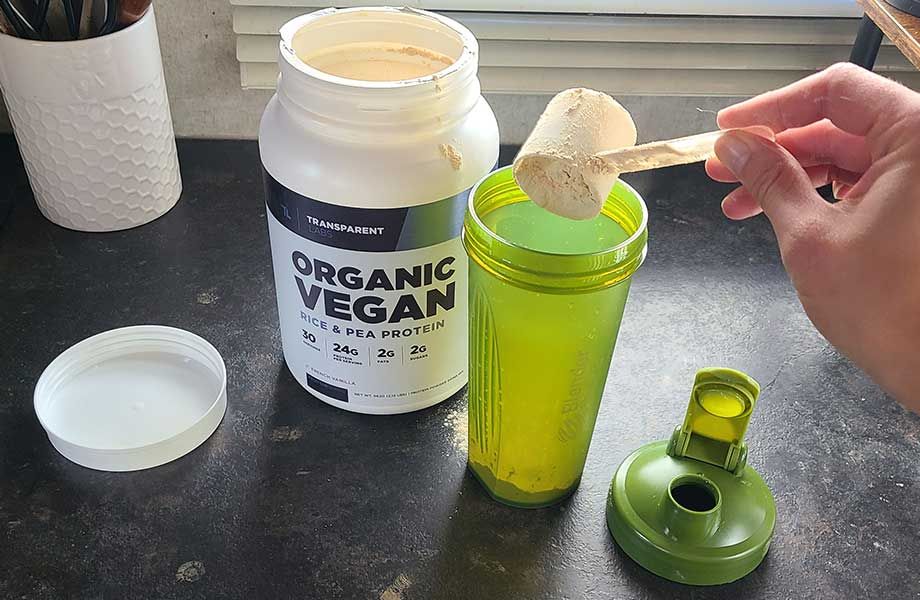
- Protein and amino acid content: Choose a protein powder with a sufficient amount of protein and amino acids per serving, especially if opting for a plant-based protein powder since they aren’t always “complete proteins”—meaning they don’t contain all essential amino acids we must consume from our diet.
- Ingredients: Ideally, the ingredients list will be slim and free of additives like sugar and artificial flavors, sweeteners, colors, and preservatives. Also factor in dietary restrictions, like needing a gluten or lactose-free protein powder, when scanning the ingredients.
- Flavor: Expectant mothers should find a flavor they’ll enjoy consuming or lean on an unflavored option, if needed.
- Price: Find a product that suits your budget while comparing prices—like on the company’s website or Amazon—and take advantage of subscribe and save options as available.
- Third-party testing: Because dietary supplements aren’t tightly regulated by the Food and Drug Administration (FDA), we always encourage opting for third-party-tested products, especially for pregnant women.
Dr. Iafelice sums it up and tells us, “The best protein powder for pregnant women should have minimal ingredients with only stevia or other natural sweetener, like monk fruit. It should be from a reputable brand that states on the label (or website) that it has third-party testing for contaminants such as heavy metals.”
Other Ways to Increase Protein Intake During Pregnancy
While protein powders help increase protein intake during pregnancy, other whole food sources should ideally provide the most dietary protein. Other helpful ways to get more protein include:
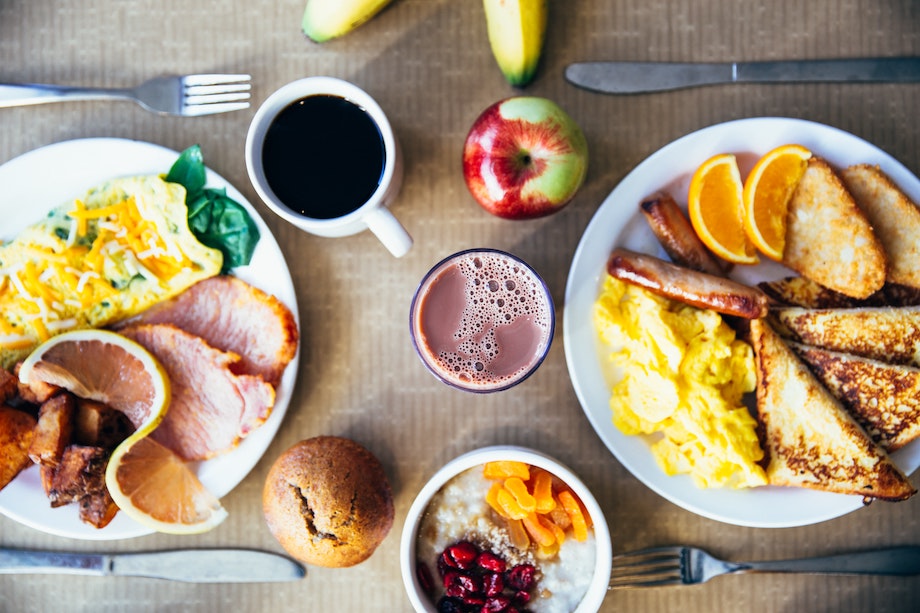
- Start the day with a high-protein breakfast to get a head start on daily protein intake.
- Prioritize protein with every meal, aiming for about 20 to 25 grams of protein with each, to ensure optimal protein absorption.
- Meal prep high-protein foods so they’re readily available and convenient, like a protein shake.
- Make simple food swaps with higher protein ingredients, including whole grains over refined grains and quinoa over pasta.
- Blend a smoothie with protein-rich foods such as Greek yogurt and cottage cheese. If appetite is low, blend in nut butters and other energy-dense protein sources to ensure you also meet calorie needs.
- Rotate simple high-protein meals and foods—like beef, chicken, and legumes—to ensure you’re getting all essential amino acids and varying other nutrients like fiber and iron.
- Snag a protein bar, especially if you get more satisfaction from chewing a protein supplement over drinking one.
- Lean on high-protein meal delivery for added convenience and flexibility.
Protein Powder While Pregnant: Final Thoughts
To support a healthy pregnancy, expecting mothers should prioritize protein through food. However, protein powders can address nutritional gaps, particularly when faced with pregnancy symptoms—like morning sickness and food aversions—that can negatively impact appetite and food intake.
Choose third-party-tested protein powders with minimal additives to ensure safety and optimal benefits, and consult a medical expert for tailored protein recommendations.
RELATED: Best protein powder for women
Protein Powder While Pregnant: Q&A
How much protein powder should I take a day during pregnancy?
If you aren’t meeting your daily protein needs with a foods-first approach, supplement with enough protein powder to meet your requirements and as your doctor advises.
What does protein do for you while pregnant?
Protein is critical for supporting the health of expecting moms while developing and growing every structure of the baby—skin, hair, bones, you name it!
Is Gold Standard Whey Protein safe during pregnancy?
Despite deeming their products high-quality and safe, Optimum Nutrition recommends pregnant women consult a doctor before consuming. We concur, especially since Gold Standard Whey Protein contains artificial sweeteners, which pregnant women might prefer to avoid due to concerns like bloating.
Can you have Slim Fast protein shake while pregnant?
Slim Fast can provide protein and energy to pregnant women, but unless advised by a medical professional, it’s important not to use a weight loss aid as it’s marketed to be.
Can I take collagen while pregnant?
While research16 supports collagen protein plays a critical role during pregnancy, there’s little evidence about the impacts of collagen supplements. Collagen is mostly considered safe, but it’s still best to consult a doctor before taking any supplements while pregnant.
These statements have not been evaluated by the Food and Drug Administration. This product is not intended to diagnose, treat, cure, or prevent any diseases.
References
- Herring CM, Bazer FW, Johnson GA, Wu G. Impacts of maternal dietary protein intake on fetal survival, growth, and development. Exp Biol Med (Maywood). 2018;243(6):525-533. doi:10.1177/1535370218758275
- Murphy MM, Higgins KA, Bi X, et al. Adequacy and Sources of Protein Intake among Pregnant Women in the United States, NHANES 2003-2012. Nutrients. 2021;13(3):795. Published 2021 Feb 28. doi:10.3390/nu13030795
- Editor. (2022, May 5). Pregnancy Nutrition. American Pregnancy Association. https://americanpregnancy.org/healthy-pregnancy/pregnancy-health-wellness/pregnancy-nutrition/
- Wierzejska RE. Review of Dietary Recommendations for Twin Pregnancy: Does Nutrition Science Keep Up with the Growing Incidence of Multiple Gestations?. Nutrients. 2022;14(6):1143. Published 2022 Mar 8. doi:10.3390/nu14061143
- Centers for Disease Control and Prevention. (2022, May 17). Maternal diet. Centers for Disease Control and Prevention. https://www.cdc.gov/breastfeeding/breastfeeding-special-circumstances/diet-and-micronutrients/maternal-diet.html
- Kominiarek MA, Rajan P. Nutrition Recommendations in Pregnancy and Lactation. Med Clin North Am. 2016;100(6):1199-1215. doi:10.1016/j.mcna.2016.06.004
- Brown B, Wright C. Safety and efficacy of supplements in pregnancy. 2020 Sep 1;78(9):782]. Nutr Rev. 2020;78(10):813-826. doi:10.1093/nutrit/nuz101
- Ota E, Hori H, Mori R, Tobe-Gai R, Farrar D. Antenatal dietary education and supplementation to increase energy and protein intake. Cochrane Database Syst Rev. 2015 Jun 2;(6):CD000032. doi: 10.1002/14651858.CD000032.pub3. PMID: 26031211.
- Liberato SC, Singh G, Mulholland K. Effects of protein energy supplementation during pregnancy on fetal growth: a review of the literature focusing on contextual factors. Food Nutr Res. 2013;57:10.3402/fnr.v57i0.20499. Published 2013 Nov 12. doi:10.3402/fnr.v57i0.20499
- Elango R, Ball RO. Protein and Amino Acid Requirements during Pregnancy. Adv Nutr. 2016;7(4):839S-44S. Published 2016 Jul 15. doi:10.3945/an.115.011817
- The Long Term Outcomes for Premature and Low Birth Weight Infants.; 2007. https://case.edu/schubertcenter/sites/case.edu.schubertcenter/files/2020-04/hack_brief_final.pdf
- Hill AJ, Cairnduff V, McCance DR. Nutritional and clinical associations of food cravings in pregnancy. J Hum Nutr Diet. 2016;29(3):281-289. doi:10.1111/jhn.12333
- Bandara SB, Towle KM, Monnot AD. A human health risk assessment of heavy metal ingestion among consumers of protein powder supplements. Toxicol Rep. 2020;7:1255-1262. Published 2020 Aug 21. doi:10.1016/j.toxrep.2020.08.001
- Wai KM, Mar O, Kosaka S, et al. Prenatal Heavy Metal Exposure and Adverse Birth Outcomes in Myanmar: A Birth-Cohort Study. Int J Environ Res Public Health. 2017;14(11):1339. Published 2017 Nov 3. doi:10.3390/ijerph14111339
- Casas R, Castro Barquero S, Estruch R. Impact of Sugary Food Consumption on Pregnancy: A Review. Nutrients. 2020 Nov 22;12(11):3574. doi: 10.3390/nu12113574. PMID: 33266375; PMCID: PMC7700555.
- Shi JW, Lai ZZ, Yang HL, et al. Collagen at the maternal-fetal interface in human pregnancy. Int J Biol Sci. 2020;16(12):2220-2234. Published 2020 May 25. doi:10.7150/ijbs.45586
Further reading

Which adjustable dumbbell is right for your needs? We break down the similarities and differences of these top brands in our NÜOBELL vs Bowflex comparison. Read more

After many years of training with and without a belt—and fielding questions about the best weightlifting belts and when to wear one—I decided to put together a guide to the best belts for weightlifting, plus everything you should know about how and when to use a weightlifting belt.Why You Should Trust UsIn the name of blatant honesty, this is one of the hardest product roundups I’ve ever created. I thought our guide to the best barbell was tough, but this guide to the best weightlifting belts takes the cake. This category might have more products than any other home gym equipment category we’ve covered yet—seems everyone and their mother is making (or importing) some sort of weightlifting belt.But we’ve tested dozens and used many for years on end. We’ve consulted with some of the strongest athletes in the world and observed elite competitors and the belts they use. Between our expertise in the fitness equipment industry and our hands-on testing process, we’ve created the most thorough guide to weightlifting belts you’ll find online. Read more

Nearly every home gym in the world features dumbbells. The issue for most is that they take up a lot of space and they’re expensive. In this guide, we’re going to solve one of those problems by showing you how to make DIY Concrete Dumbbells for less than $20. With the proper creativity, you could get these above 150 LB or as low as 5 LB and do it cheaply. Read more

Want an affordable treadmill that doesn’t require an internet connection and that offers a great warranty program? Read our Horizon T303 Treadmill review! Read more

